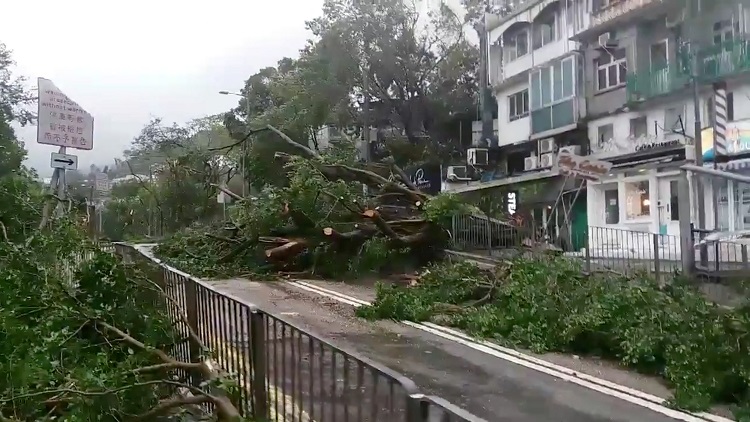A good number of people in Hong Kong were reported to have been stung by bees over the past few days after Typhoon Mangkhut lashed the metro. With trees being toppled, insect nests were destroyed.
According to South China Morning Post, many victims brought their complaints about bees online. Most of the cases were reported in Tai Po, where some residents said they saw the insects attacking people in the streets. There were also sightings at Kwong Fuk Road, which is the main road in the area.
A photo showing a large number of bees in a crack on a tree trunk has circulated online and has since gone viral.
In WhatsApp messages on Monday, one user said a friend who worked as a nurse reported that there had been many cases of wasp stings at the hospital's emergency department. The user urged parents not to let their children go out, adding that "the bees are crazy after the storm."
Another user mentioned on the same platform that their colleague had gone to the hospital for a bee sting and learned from a nurse that the case was the 10th that day.
Dr. Eddie Yuen Cheuk-pun, who is a consultant at Alice Ho Miu Ling Nethersole Hospital in Tai Po, confirmed on Tuesday that from midnight on Monday to 1 pm on Tuesday, 20 people (aged 22 to 76) had sought help at the emergency unit for bee stings.
Yuen said: "It was extraordinary this time to have so many cases in a short period ... I would suggest that people see a doctor because they won't know whether they are suffering from mild, moderate or severe allergic reactions."
He believes that the cases are likely to be related to the storm, especially since it had significantly destroyed beehives in trees.
While most victims suffered moderate allergic reactions, all of them were already discharged from hospital after treatment, Yahoo! News reports.
Medical sector lawmaker Dr. Pierre Chan Pui-yin said he had heard of bee sting incidents in urban areas such as Jordan, though they were extremely rare.
He advised that victims must seek medical help if they experienced severe reactions, such as breathing difficulties.
Hong Kong Entomological Society vice-chairman Yiu Vor said the insects would try to protect their hives.
"If there is anything attacking their hives, the bees' natural instinct would prompt them to look for who caused the damage," he said. "If a person just walks past a damaged beehive, it is possible those bees would see him or her as an attacker."






